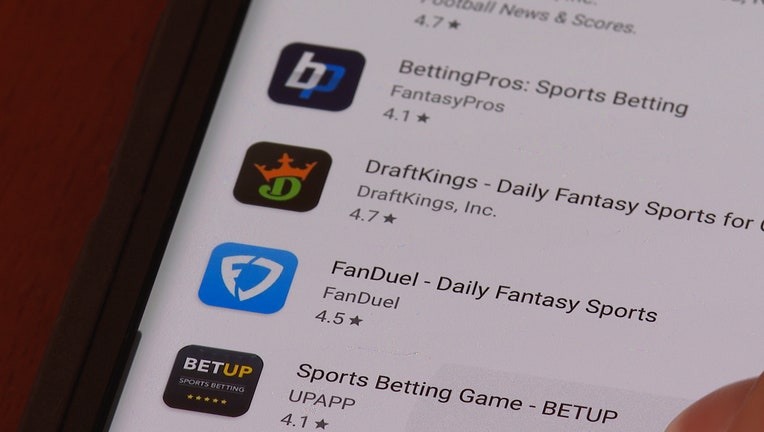Sports franchises favor proposal to legalize sports betting

ATLANTA - Atlanta’s major sports franchises are applying their muscle to a state Senate bill that would legalize sports betting underneath the umbrella of the state lottery, even as opponents say legalized sports betting would be addictive and corrosive.
The Senate Regulated Industries Committee on Tuesday held a hearing on Senate Bill 403, which would let people bet on professional, college and Olympic sports, but not horse racing. People could bet from their phones anywhere in the state, although the bill seeks to limit bettors to those 21 and older.
The bill’s chances are unclear.
Sen. Burt Jones, a Republican from Jackson, argues Georgia should legalize sports gambling because people are already betting illegally, citing estimates that $1.5 billion a year is wagered in the state.
“It’s found money, in the scheme of things,” Jones told the committee.
Jones introduced the bill amid questions about whether Georgia’s constitution needs to be amended to allow sports betting. Jones’ measure was introduced without a constitutional amendment, but Jones has since also introduced such an amendment. However, he said Tuesday that he believes the General Assembly can legalize sports betting without a constitutional change.
“I’ve got some legal minds that think this does fit into our code section,” Jones said.
MORE: Georgia lawmaker wants to legalize online sports betting
Jeff Lanier, a lawyer employed by the General Assembly, told senators there are arguments on both sides, but that lawmakers would avoid a long legal struggle by putting the question to voters. That would require a two-thirds vote of both houses before voters got their say in a referendum.
“You should go for the constitutional amendment while you have the opportunity,” Lanier said.
The act would create a Georgia Mobile Sports Wagering Integrity Commission, which could license online operators such as Fan Duel and Draft Kings. The gambling companies would only be able to take cash and debit cards, and the state would get 10% of the amount that operators win. That might be worth $15 million a year. Of that money, 5% would go to gambling addiction and the remaining 95% would go to fund college scholarships and prekindergarten classes, as the lottery does.
Steve Koonin, CEO of the Atlanta Hawks pro basketball team, told lawmakers that sports franchises don’t want to run the games, but want the passion that bettors bring, saying someone with a bet is 19 times more likely to watch a game.
“What we hope to receive in return is generations of fans who love the games we present,” Koonin said.
Opponents, though, say sports betting is a more addictive form of gambling than the lottery or casinos, and that the state’s small stream of revenue would come with high social costs.
“We’re talking about 24/7 gambling on cell phones,” said John Kindt, an emeritus business professor at the University of Illinois. “Ten percent, at least, of our kids, are going to get hooked on this.”
Mike Griffin of the Georgia Baptist Mission Board said gambling companies can only profit reliably if more bettors lose than win, saying games are thus “rigged.”
“Really, gambling is legalized fraud,” Griffin said.
MORE: Sports betting's rapid expansion faces more tests in 2020

